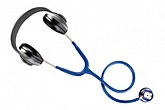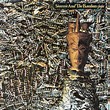|
|

From head to heart Following our retroscope series going on for several years, here we go again. Yes, for one more year! Here's Speakers' corner's cousin; From head to heart. Luna Kafé's focused eye on great events, fantastic happenings, absolute milestones, or other curious incidents from the historic shelves'n'vaults of pop'n'rock. Blowing our ears and our head, punching our chest and shaking our heart, or simply tapping our shoulder. Making us go sentimental, but not slaphappy. This moonth sees us return to a band through the 'retro-scope' for the third time. Gothic new-wave post-punk lives on, right? The punky Sioux queen and her tribe long since folded, to leave their musical war path. The Great Sioux War in the US took place in 1876 (-1877). The UK 'Sioux tribe' formed and went to war 100 years later - the year punk broke in England. The rest is history..
We have earlier hailed the two Siouxsie albums Kaleidoscope (August 1980) and A Kiss In The Dreamhouse (November 2002) as new wave/post punk classics. So why not take a closer look at the classic in between as well, released 35 years ago this very moonth. Juju was the band's fourth album and, at least in retrospect, took them to another level compared to their previous ones. By now guest guitarist on some of the songs of Kaleidoscope John McGeoch had left Magazine and was a full-time member of the Banshees. He had taken part in the development of the music along with the three others of the tribe, namely Siouxsie Sioux (vocals and a little bit of guitar), Steven Severin (bass) and Budgie (drums and percussion). Some of the songs of Juju are not that catchy at first, but they grow. This steady line-up and production makes the album stand out more as an entity than its predecessor. The songs generally have a dark spooky back cloth with some tribal and superstitious undertones that reflects the album cover. They might be roughly divided into punky ones and more airy ones closer to pop, with a couple pointing out in other directions. Let's take the punkiest stuff first. "Halloween", "Monitor", "Sin in My Heart" and "Head Cut" are dominated by energetic, punchy, hewing, sometimes staccato guitars and rhythms, not least the former song. "Monitor" includes guitars all over the place, fuzzed-out and with flanger effect as well. It might sound monotonous at first, but the band know exactly when it's time to make a change, with fascinating howls by the leading lady and a complete halt midway. The latter two of this department follow suit with Siouxsie's vocals and lyrics at her aggressive best: 'Oh severed head There are three pop oriented songs, though punk-pop might be a better description. Two of them were released as singles with moderate chart success. "Spellbound" that opens Juju was launched a moonth prior to the album. McGeoch's guitar work stands out. A fascinating ringling guitar sound here, especially in the catchy chorus: 'Following the footsteps Johnny Marr of The Smiths fame has stated that he was inspired by fellow Mancunian John McGeoch and his guitar efforts on "Spellbound" in particular. "Arabian Knights" released as a single in July 1981 is even catchier, dominated by a brittle guitar at the treble end. Another spine chilling affair with a bit haunting overall feel. My favourite of the album is "Night Shift" with a. The only about quiet song of the album, for a while at least, with the disturbance underneath the surface. The song is rocking and rolling slowly forward while my neck hair raise on end when we reach the two chord chorus wonder. The experimental side of the band is represented with the seven minutes long "Voodoo Dolly" that finishes off the album. It's dominated by Siouxsie's chanting, reverbed and occasional echoed vocals and McGeoch's improvised guitar noise over a bit of almost drowned-out drums. It's noisy all right, and it works! Gives med the shivers when the chaos grows during the last three minutes. There are allegedly no keyboards on the album whatsoever. The effect on McGeoch's main guitar on the somewhat unnerving "Into the Light" over Budgie's tribal reverbed drums might be mistaken for a kind of keyboard, though. A fascinating song and production. All in all McGeoch's guitar work shines throughout the album and is a main reason why it works so well. I can't imagine they managed to recreate the studio versions of any of these songs live without at least one extra guitarist. Anyways, one hell of an album. And remember: 'when your elders forget Copyright © 2016 JP
|
| You may also want to check out our Siouxsie & The Banshees article/review: Kaleidoscope. |
| © 2016 Luna Kafé |
 Siouxsie & The Banshees
Siouxsie & The Banshees